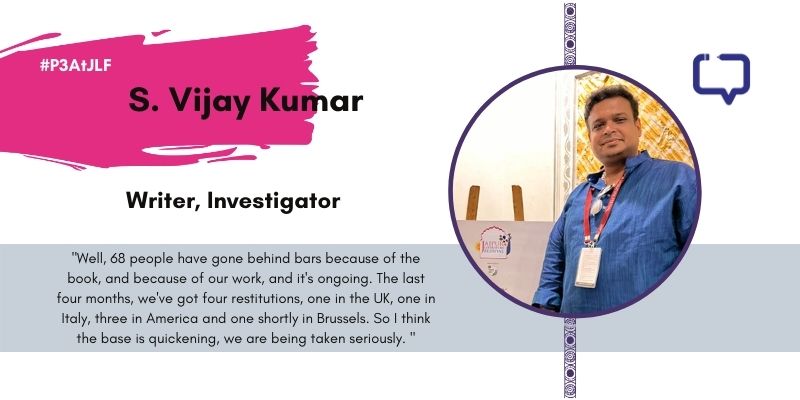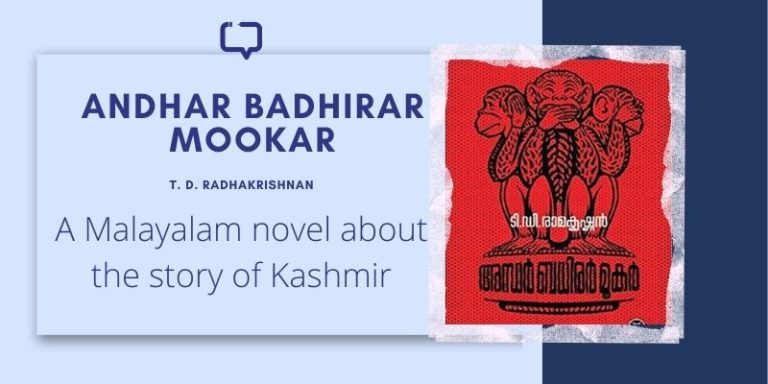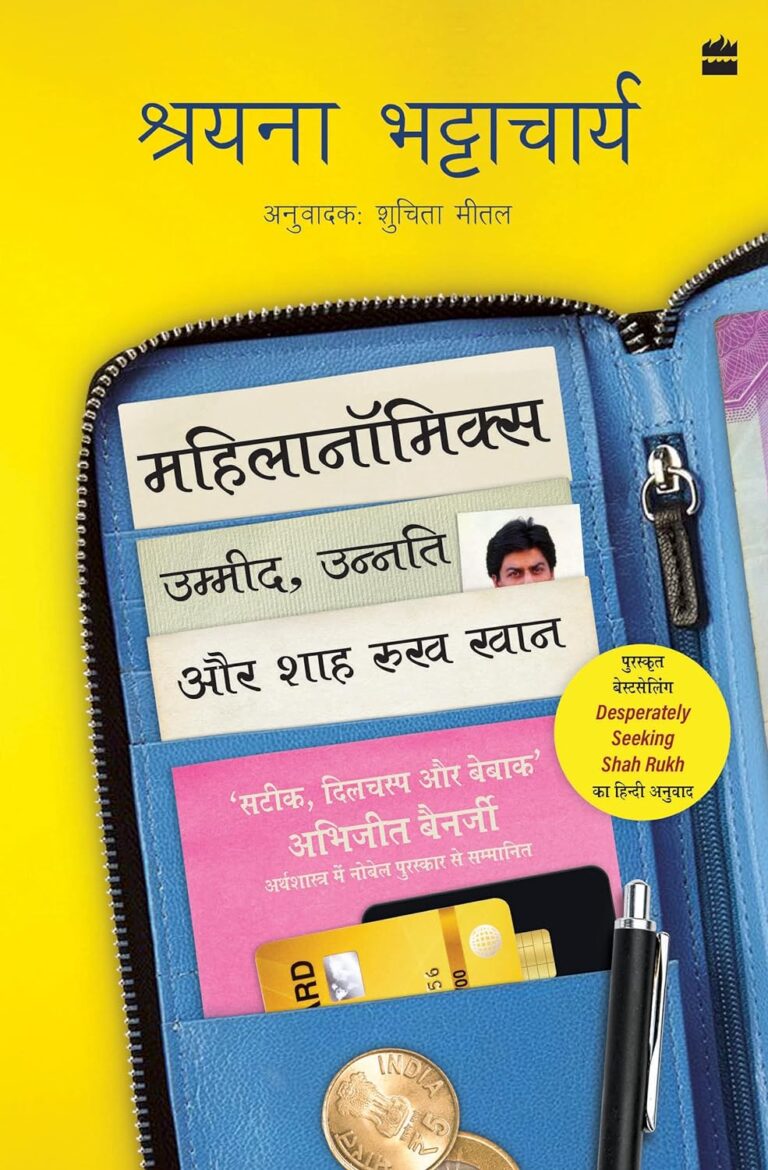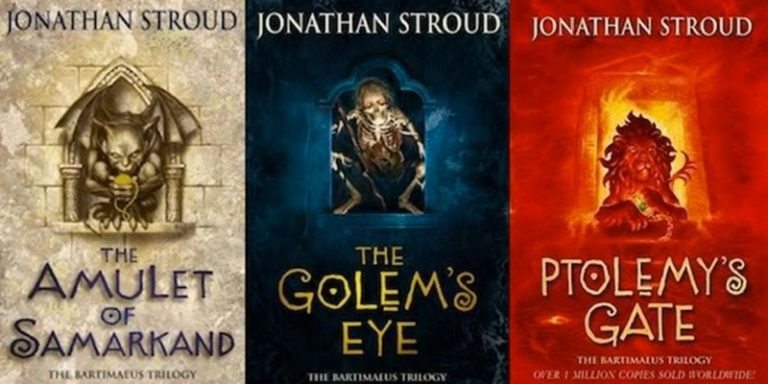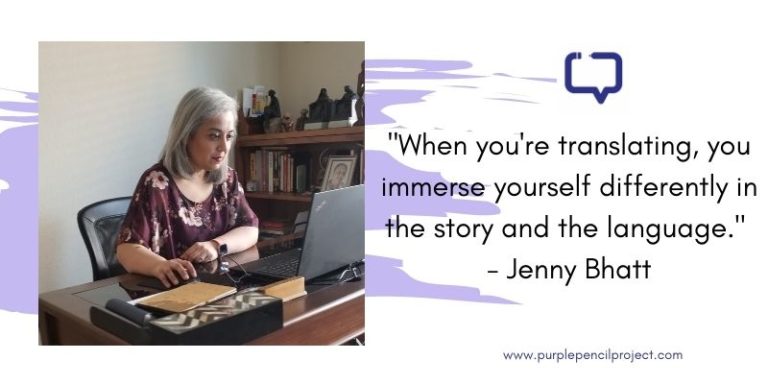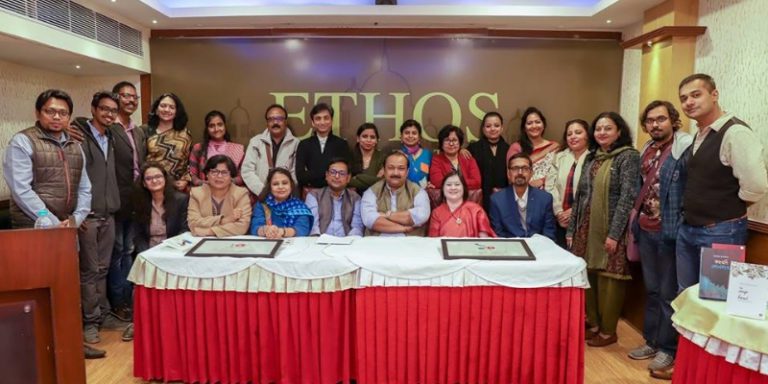Purple Pencil Project’s Amritesh Mukherjee spoke to S. Vijay Kumar, the author or The Idol Thief, which goes deep into the underbelly to unravel the “21st-century pillaging of India’s temples by a glittering cast of suave criminals”. Transcribed excerpts.
The title of your book, The Idol Thief is very intriguing, very amusing even. Where did the idea of this come from? Was this something you thought of while writing the book?
S. Vijay Kumar: When you say the word idol, (it) itself has got a negative connotation, so it gets a lot of flak when we call it idol thief. In fact the police wing in Tamil Nadu, which is probably the only state that has a dedicated crime branch, it’s called the idol wing. We have that issue. And whenever we talk about a lack of parallel, so you call it murti. But when you’re talking about buried idols, for example, you take the power out of it, and then you bury it. And then you do a pran pratishtha, and this time you breathe air into it. So buried murti, is it an idol, or is it a murti? We didn’t want to get into all that. Playing purely to the galleries, it could have been the [statue] thief or whatever, but we decided to call it The Idol Thief, also in part to appeal to the international audiences who recognize the term.
We encourage you to buy books from a local bookstore. If that is not possible, please use the links on the page and support us. Thank you.
The Hindi translation of your book came in 2020, two years after the English version came out. What was the process going into it? What were the challenges of getting non-fiction translated? How did it help?
S. Vijay Kumar: In this case, I think the English version itself was tough, because we were talking about an undertrial case, which had still not gone to trial. In fact, it was a commissioned book by Juggernaut and took us about deep into the crime and crime that is, say, still not clear. Plus, we were also exposing a criminal underworld, which included law enforcement in India. So it took a lot of time. So we needed to be really, really sure. And I want to thank to the guts of the publishers who chose to take on this challenge.
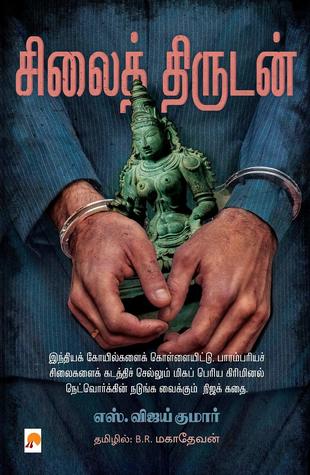
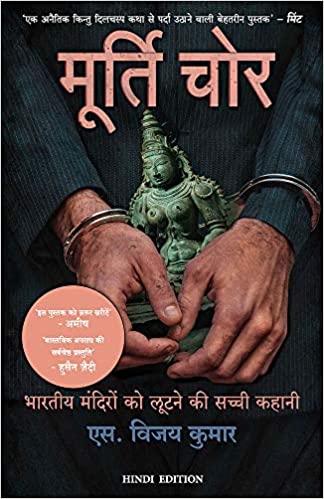
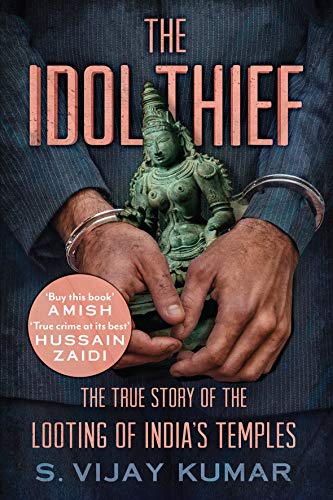
The first translation was in fact in Tamil which came out because, of course, much of the plot was happening in Tamil Nadu. New Horizontal Media brought out the Tamil version. I had some trouble then with the translator, who got involved with the story and started polishing it. My brief was that it has to be true to what is written. Because the issue is if you say even a little bit more, then you have to go through legal issues of libel again. So it was very tough, the translator really felt bad. He said, “Sir, I can do more, I can give it more empathy, emotion”. I said no, stick to the brief. And I think that’s what is difficult whenever you’re talking about nonfiction, and I’m really happy that Kanishka, who was the literary agent, managed to do it with Manjul. Manjul actually brought out Marathi, Malayalam and Hindi. I think the Malayalam one came up first and was then followed up by Marathi.
I was so happy because, to answer your question, one of my close friends is from Pune. And his mother had read the book in English, but he gifted her the Marathi version, and she emoted, she said it meant a lot more to me when I read it in Marathi. Unfortunately, I can’t even read the title in Marathi but I think it’s important when you’re talking about reach. In fact, it was one of the reasons why I talked with publishers and said let’s forgo all these quarrels (for) the translation because we were not doing this for money.
So I think it’s more important. We are hoping it comes out in more languages. I think it’s important to reach the common man in a tongue, in a tenure. Especially when you’re talking about true crime stories, it’s easy to lose the plot and add a few bells and whistles to make it more dramatic, but you need to be careful not to cross that line.
The book reads a lot like a crime thriller. So was that something, which was intentional, when you set about writing this book?
S. Vijay Kumar: You see, in the book, there’s only about 40% of what I wanted to write. Much of it was chopped off because, not for anything else in the sense that we were talking about a crime scene and too much involvement in it was exposing us. To be honest, there was the number two in the police who we exposed. He went missing for three months. Imagine a police officer going underground. So it was very risky for us to expose much more than we did and the kingpin whom we named has still not been caught. So it was tough to do that. But hopefully, when it’s drafted as a script, we are hoping that there will be your bells and whistles because it would be highly fictionalized on screen.
When is this scheduled to go on, the adaptation?
Soon.
Speaking of treasures that are stolen; We often decry about Kohinoor especially, it’s been a highlight for eons…
S. Vijay Kumar: There was a talk with Sai Deepak and Shashi Tharoor in Chennai. I was in the audience. I asked this question to Tharoor saying you write so much. Why didn’t you bring it back when you were in power? And he talked about the Kohinoor. And I cut him down like I cut you now to say that Kohinoor to me is just a stone. These rubies are priceless and I’m more worried about that.
True, that was exactly my question. We cry a lot about Kohinoor but there’s a blank space where we just do not have any sort of awareness about the breadth and depth of the true loss of our heritage, be it the common man, be it even, to an extent, the higher officials. So do you hope this book serves in changing that situation?
S. Vijay Kumar: Well, 68 people have gone behind bars because of the book, and because of our work, and it’s ongoing. The last four months, we’ve got four restitutions, one in the UK, one in Italy, three in America and one shortly in Brussels. So I think the base is quickening, we are being taken seriously. And people don’t want to mess around with our work because they know it’s pakka, they can’t stonewall us. Instead they just quietly want to get back.
And do you also hope that with your work, your research, everything that has gone behind it, it would inspire more talks, more books or something like that?
S. Vijay Kumar: I’m particularly working on a prequel, and a sequel to The Idol Thief, dealing with 12 iconic cases where India was lax. Hopefully I will reopen those investigations, and some of them do deal with colonial loot. The sequel is more like a docu(mentary) series type of storytelling where we capture the actual work that goes into some of these iconic recoveries and failures. And I’m already mentoring two groups in Nepal. They are called the Nepal Heritage Recovery Committee and one other committee. There is a Nepal Pride Project that’s come up and we’re talking to friends in Sri Lanka for a Sri Lanka Pride Project. We have returned objects based on our work (from) Afghanistan, Burma, Pakistan, Sri Lanka, Cambodia, Thailand, and Laos. So we’ve already contributed. I was in Nepal two months ago, where three objects that were seized were returned back to Nepal. So yes, slowly but surely, work is happening.

As part of our effort to compensate our writers better, we at Purple Pencil Project have launched the #PayTheWriter initiative, where readers can directly show support and appreciation for our wonderful team.
Scan or upload this image on your UPI app, and show them the love 😀








